各位同学在查看时请点击全屏查看
![]()
![]()
![]() 2018年六盘水中考英语冲刺试题
2018年六盘水中考英语冲刺试题
(英语卷共八大题,满分150分,时间120分钟)
题 号 | 一 | 二 | 三 | 四 | 五 | 六 | 七 | 八 | 总分 |
得 分 |
|
|
|
|
|
|
|
|
|
![]() I. Listening Part (30分)
I. Listening Part (30分)
( I ). 选择与你所听到的句子意思最接近的选项.(6分)
1. A. Miss Smith was free and she would come to see us.
B. Miss Smith had much work to do and she wouldn’t come to see us.
C. Miss Smith did a lot to try to visit us.
![]() 2. A. Both he and his sister caught the early bus.
2. A. Both he and his sister caught the early bus.
B. Neither he nor his sister caught the early bus.
C. He took his sister to catch the early bus.
3.A. The earth is becoming bigger and bigger.
B. The people in the world run much faster than before.
C. The number of the people is becoming larger and larger.
4.A. That boy took us to the hospital.
B. We took the boy to hospital.
C. Someone took the boy we saw to hospital.
5. A. When did you see your uncle for the last time?
B. When did you see your uncle die?
6. A. She doesn’t know where she can spend her holiday.
B.I will tell her where she is on his holiday.
C. She wants to ask when she can begin her holiday.
( II ). 根据所听到的对话及问题, 选择正确答案.(6分)
7. A. By bus. B. On foot C. On his uncle’s bike. D. In his father’s car
8. A. Yes, he did. B. No, he didn’t. C. No, he wasn’t D. Yes, he was.
9. A. Because he didn’t know the way to the station.
B. Because there was too much traffic on the road.
C. Because he had an accident.
D. Because the train started five minutes before.
10. A. 15 yuan B. sixty dollars C. thirty pounds D. thirty yuan
11. A. When Mary told him before she went for the holiday.
B. Before Mary went to have the holiday.
C. After Mary was back to the USA and told him with her own mouse.
D. When Mary was on holiday in Australia and told him by telephone.
12. A. 10 minutes B. 20 minutes C. almost an hour D. thirty minutes
(III). 根据所听到的短文, 选择正确答案(18分)
( A )
13. The weather on that night was ______
A. cloudy B. rainy C. windy D. snowy
14. Where was Miss Brown going ?
A. To his father B. to have a holiday.
C. to her friend’s house D. Back home.
15. Why was Miss Brown afraid?
A. She might have an accident. B. she couldn’t go there on time.
C. She would wear glasses again before others D. She couldn’t drive fast.
16. What was Miss Brown’s first thing to do?
A. She began to have a rest. B. she turned on the radio.
C. She had to drive faster D. She started to travel slowly.
17. Which was Miss Brown’s best idea?
A. She went to a hotel and had a good sleep. B. She started to travel again
C. She called her friend for help D. She drove back to her office.
( B )
18. Jack liked to travel with _______.
A. a lot of good friends B. no friends C. few good friends D. his family
19. the woman like traveling because she wanted _____.
A. to be alone B. to stay with her friends
C. to keep away from her family and house work. D. to make others happy.
20. The woman traveled just to ______.
A. visit her friends B. leave her work and enjoy herself
C. buy something she had no time to get when she was work.
D. spend a day to have a long walk.
21. The third person liked traveling because she liked _________.
A. to visit friends B. to have a rest
C. to have a trip long enough to get himself tired.
D. to learn something about a different way of life.
II. 单项选择(20分).
22.This is ______ one-way road, There is _____ traffic lights along this road.
A. a, no B. an, no any C. an, no D. an, not a
23. Who did you see ______ him _____ in the river.
A. prevent, to swim B. to prevent, from swimming
C. prevent, from swimming D. to prevent, to swim.
24. So far, the people ______ not to pollute the water again and again.
A. have told B. have asked C. were told D. have been told
25. China and India have more _______ than any other ______ in the world.
A. population, countries B. population, country
C. populations, countries D. populations, country
26. –Oh dear! Our team has a goal again. -- ________.
A. Congratulations to you B. Bad luck C. I am glad to hear that. D. Bad lucky
27. The man _______ borrowed my pen was very badly ill.
A. what B. whom C. which D. who
28. We all can see lots of flowers on ______ of the street.
A. both side B. the either side C. either side D. every side
29. I was _____ busy reading a book _____ I forgot to look at the time.
A. so, that B. such, that C. quite, D. too, to
30. The girls _____ the farm by the time the farmers began to have lunch.
A. got to B. had reached at
C. will have arrived in D. had reached
31. The green plants that _____ to be well looked after don’t grow very well along the busy street.
A. needs B. has C. need D. must
32. A: What are the boys doing?
B: They are looking for the cage that Polly _____.
A. lives B. live in C. lived D. lived in
33. Did you think ________ for us to learn to be polite?
A. it necessary B. it’s necessary
C. that good D. that was good manners
34. I asked the old man _______ at home.
A. to instead of reading B. instead of reading
C. to instead to read D. instead of to read
35. The sand-storm stopped the American army _____ Iraq. But the Americans did at last.
A. to attack B. attacked
C. from attacking D. at attacking
36. She asked us _____.
A. where he lived in B. which door could she open
![]()
 C. what he was there to do D. who we were brought there
C. what he was there to do D. who we were brought there
37. My uncle _____ there since he left there at the age of twenty.
A. has begun to study B. has gone
C. has left D. hasn’t gone
38. ____ she ____ he has seen any animals in the last few years.
A. Both, and B. Not only, but also
C. Either, or D. Neither, nor
39. I was made _____ the dog ____ the door of the house.
A. to tie, to B. tie, to C. tying, of D. to tie, on
40. They got _____ the foot of the mountains just now.
A. in B. to C. at D. on
41. She ran away ____ you when you needed his help most, will you ____ regard him ____ your friend?
A. from, even, as B. from, still, as C. to, even, for D. to, still, on
IV. 完型填空(20分)
1970 was World Conservation(保护) Year. The United Nation wanted everyone to know that the world is in 42 . They hope that government would act quickly to conserve nature. Here is one example of the problem. At one time there were 1, 300 different plants, trees and flowers in Holland but now only 866 remains. The others 43 by modern man and his technology(技术). We 44 the world, the air, water and everything 45 grows and lives. We can’t live 46 these things. If things go like this, we shall destroy ourselves.
What 47 in the future? Perhaps it is more important to ask: “What must we do now?” The people who will be living in the world of tomorrow are young of today. A lot of them know conservation is 48 . Many are helping to save our world. They plant trees, build bridges 49 rivers in forests, and so on. In a small town in the United States, a large number of girls cleaned the banks of 11 kilometers of their river. Young people may hear about conservation through a record called “No one’s going to change our world.” It 50 by the Beatles, Cliff Richard and other singers. The money 51 it will help to conserve animals.
42. A. troubled B. dangerous C. safety D. danger
43. A. were killed B. have destroyed
C. have been destroyed D. have been changed
44. A. are changing B. are becoming C. are populating D. are building
45. A. what B. that C. it D. who
46. A. with B. without C. if there are D. when we have
47. A. will happen B. will see C. will do D. to do
48. A. good B. important C. necessary D. bad
49. A. on B. above C. to D. across
![]()
 50. A. was made B. is made C. was destroyed D. was seen
50. A. was made B. is made C. was destroyed D. was seen
51. A. for B. from C. about D. with
V.阅读理解:(每小题2分, 共30分)
阅读下列短文,从四个选项中选出能完成所给的句的最佳答案。
Weather has a strong effect(影响)on people. It influences health, intelligence(智力)and feelings.
In August, it is very hot and wet in the southern part of the United States. People there easily have heart trouble and other kinds of health problems during this month. In the Northeast and the Middle West, it is hot at some times and very cold at other times. People in those states will have heart trouble after the weather changes in February or March.
The weather can also influence intelligence. For example, in a 1983 study by scientists, the IQ scores of some college students were very high during storm, but after the storm, their scores were low. Storms can increase intelligence. Very hot weather, on the other hand, can decrease(减少) it. Students in many schools of the United States often do badly in exams in the hot months of the year (July and August ).
Weather also has a strong effect on people’s feeling. Winter may be a bad time for thin people. They usually feel cold during these months. They might feel depressed during cold weather. In hot summer weather, on the other hand, fat people may feel unhappy. At about 65F, people become stronger.
Low air pressure (气压) makes people feel free, but it also increases forgetfulness. People leave more bags and umbrellas on buses and in stores on low pressure days. There is a “perfect weather” for work and health. People feel best at a temperature of about 64F with 65 percent humidity (湿度).
Are you feeling sick, sad, tired, forgetful, or very intelligent today? The weather may be the reason.
52. Health problems can be easily caused by_____ according to the passage.
53. Intelligence may be lower______.
A. during a storm B. when the air pressure is low
C. on a very hot day D. when you take in an exam
54. In the third paragraph, “depressed” means_____.
A.兴奋的 B. 愉快的 C.忧郁的 D.担心的
55.In “perfect weather”, ______.
C.the air pressure is low
D.the humidity is 65 percent and the temperature is about is about 64F
56.The passage mainly tells us______,
B
Trees are useful to man in three important ways: they give him wood and other products ;they give him shade ;and they help to prevent droughts and flood.
Unluckily, in many parts of the world, man has not realized that the third of these services is the most important. He wants to make money from trees. He has cut them down in large numbers, only to find that without them he has lost the best friends he had. And besides, he is usually too careless to plant and look after new tress. So the forests slowly disappear.
This does not only mean that man will have fewer trees. The results are even more serious: for where there are trees, their roots break up soil to allow the rain to sink in. And it can prevent the soil from being washed away easily; but where there are no trees, the rain falls on hard ground and flows away, causing floods and carrying away the rich top-soil. When all the top-soil is gone, nothing left but desert.
Two thousand years ago a rich and strong country cut down its trees to build warships, with which to make itself an empire. It set up the empire but, without its trees, its soil became poor and it grew weak. When the empire fell to pieces, the home country found itself faced by floods and starvation(饥荒).
57.The most important service of trees to man is that_______.
58. In many parts of the word forests slowly disappear because________.
A. many trees have been cut down by man
B. man has not planted enough trees
C. new trees are not looked after carefully
D. all the above
59. Land becomes desert after all trees are cut down because________.
A .roots of trees break up the soil
B .there is too much rain
C .there are no longer tress to keep rain and protect the top-soil
D .strong winds bring a lot of sand
60.The country mentioned(提到的)in the passage faced floods and starvation
because .
61. Which is the best title of the passage?
C
For several years, Americans have enjoyed teleshopping —watching TV and buying things by phone. Now teleshopping is starting in Europe (欧洲). In a number of European countries, people can turn on their TVs and shop for clothes, jewelry, food, toys, and many other things.
Teleshopping is becoming popular in Sweden, for example. The biggest Swedish company sells different kinds of things on TV in 15 European countries, and in one year it made $100 million. In France there are two teleshopping channels, and the French spend about $20 million a year to buy things through those channels.
In Germany, until last year teleshopping was only possible on one channel for 1 hour every day. Then the government allowed more teleshopping. Other channels can open for teleshopping company and a 24hour teleshopping company. German businesses are hoping this new teleshopping will help them sell more things.
Some people like teleshopping because it allows them to do their shopping without leaving their homes. With all the problems of traffic in the cities, this is an important reason. But at the same time, other Europeans do not like this new way of shopping. They call teleshopping “junk (垃圾) on the air”. Many Europeans usually worry about the quality (质量) of the things for sale on TV. Good quality is important to them, and they believe they cannot be sure about the quality of the things on TV.
The need for high quality means that European teleshopping companies will have to be different from the American companies. They will have to be more careful about the quality of the things they sell. They will also have to work harder to sell things that the buyers cannot touch or see in person.
62. Teleshopping is _______in Europe.
A. not popular B. growing
C. not possible D. more popular
![]()
 63. People like teleshopping because it is _________.
63. People like teleshopping because it is _________.
A. American B. cheaper
C. easier D. more popular
64. Some Europeans don’t like teleshopping because by________.
65. In Germany, teleshopping may ________.
66. The best title of this passage is ________.
VI. 同义句转换。(每空1分, 共20分)
根据A句的意思,在B句填上适当的单词,使A。B两句的意思相同或相近。
(每空一词,含省略句。)
67. A: Doctors stop the man from smoking .
B: Doctors _____ him _____ _____ smoke.
68. A: No matter how difficult the work is , you must finish it on time .
B: ______ ______ the work is , you must finish it on time.
69. A: we’d better speak English as much as we can .
B: It’s better for ______ to speak English as much as ______ .
70. A: I’ll have to ask someone else to fix my telephone .
B: I’ll have to ______ my telephone______ .
71. A: Mother said , “I’ve got a letter from your brother .”
B: Mother told me that she ______ ______ from my brother .
72. A: It is so hot that I can’t wear the coat .
B: It is _____ _____ _____ me to ______ the coat .
73. A: How much did you spend on the new bike ?
B: _____ did the new bike ______ you .
74. A: Please do come over to my home for dinner today .
B: ______ ______ to come over to my home for dinner today , please .
![]()
 75. A: Mr white died suddenly, and it surprised his friends .
75. A: Mr white died suddenly, and it surprised his friends .
B: His friends were _____ at him sudden _____.
76. A: My little brother likes watching TV without my family .
B: My little brother ______ watching TV______ at home .
VII.短文填空。 (每空2分,共20分)
通读短文,根据短文内容,填入所缺单词,每个空格只填一词。
An English tourist found himself in Norway (挪威) ___77___ only enough money in his pocket to pay his journey back . As he knew it would ___78___ him only two days to get to England, he decided that he could easily do ___79___ food. So he ___80___ a ticket and went on the ship.
He closed his ears to the sound of the lunch bell. When dinner time came, he refused the invitation to go to eat with one of the other tourists, saying that he didn’t ___81___ well.
The next morning he didn’t go to breakfast and at lunch time he again ate nothing. At dinner time he was so ___82___ that he could not stand it any longer.
“I’m going to eat,” he said, “even if they ___83___ me into the sea afterwards.”
At dinner he ate all that man servant on the ship put in front of him and got himself ready for ___84___ .
“Bring me the bill,” he said to the man servant .
“The bill, sir?” said the man .
“Yes,” answered the Englishman .
“There isn’t any bill,” was the ___85___ , “On the ship ___86___ are free in the journey.”
77. ______ 78. ______ 79. ______ 80. ______ 81. ______
82. ______ 83. ______ 84. ______ 85._______ 86._______
VIII.书面表达。 (共10分)
“袋鼠族”(The Kangaroo Group) 这个词最早出现在1998年法国新闻类周刊《快报》的一篇文章中,它用来比喻那些到了就业年龄,但以薪水少等理由仍依赖父母的二十多岁的年轻人。目前,我国也有65%以上的家庭存在着这样“老养小”的现象。据调查,“袋鼠族”主要有六类人:1、毕业不就业,父母怀里享安乐;2、怕累不工作,等着天上掉馅饼;3、创业不成功,崽花爷钱心不疼;4、跳槽拣肥缺,竹篮打水一场空;5、下岗丢饭碗,游手好闲蹭老爸;6、文化技能低,后悔少小不努力。对这类现象,解决的办法主要是:1、社会帮一把;2、家庭推一把;3、自己撑一把。
请你联系自己的实际,以“The Kangaroo Group in My Eyes”为题写一篇短文谈谈你对这种社会现象的看法。
要求:
1. 词数:80—100词。
2.书写规范,语句通顺,行文流畅,结构完整,语法正确。
3.要点齐全,但不可逐字逐句翻译。
The Kangaroo Group In My Eyes
___________________________________________________________________________________________________________________________________________________________________________________________________________________________________________________________________________
2018年六盘水中考英语冲刺试题听力材料及参考答案
I. Listening materials
( I ). 选择与你所听到的句子意思最接近的选项.
1. Miss Smith was too busy to visit us..
2. He caught the early bus and so did his sister.
3.The world’s population is growing faster and faster.
4. The boy we saw was taken to hospital.
5. When was the last time you saw your uncle?
6. She wants to know where she can travel for holiday.
( II ). 根据所听到的对话及问题, 选择正确答案.
7. W: Dad, my bike is broken, Could you drive me to school this morning?
M: It’s still early. Why not walk there?
Q: How will the girl go to school?
8. W: Bill, where is Jack? He didn’t come to school today.
M: He’s at home, Mrs Black. He was hurt in an accident yesterday.
W: I am sorry to hear that. Is it serious?
M: Luckily, he wasn’t hurt badly, or he must be in hospital now.
Q: Was Jack badly hurt in the accident?
9. W: You mean you missed the train.
M: Yes, though I started very early.
W: How could it happen?
M: I didn’t know the way to the station was so busy.
Q: Why did the man miss the train?
10. W: Excuse me, How much is this kind of skirt?
M: It was 60 yuan each last month. But now you can pay only half for it.
Q: How much is the skirt now?
11.M: Mary it’s you! You’ve come back to New York so soon. Did you enjoy yourself during the holiday?
W: Very much. I visited a lot of places of interest in Australia.
M: Australia? I thought you had been to Canada.
Q: When did the man know the woman had been to Australia?
12. W: You are late, Mr Smith.
M: I am sorry, but doesn’t the meeting begin at 2:30?
W: Yes, but it is already 2:45 now.
M: My watch is just 2:15. There must be something wrong with it.
Q: How many minutes late did Mr Smith go to the meeting?
(III). 根据所听到的短文, 选择正确答案
( I )
It was late at night. The traffic was usually bad at the moment in the city. Miss Brown wanted to be on time to her friend’s house. She was afraid because it was raining, and the traffic in the rain was worse than usual. Miss Brown also had bad eyes. She didn’t think she looked beautiful when she wore glasses, so she didn’t wear her glasses any more. She was trying to read the road signs, but she couldn’t see them. The first thing she did was that she started to drive slowly. The second thing she did was that she turned on the radio. When she listened to the radio, she didn’t feel afraid or alone. The third thing she did was that she went to a hotel and slept. She drove to her friend’s house the next morning when the traffic was good. The third thing she did was the best idea. She didn’t want to lose time, but she really want to make herself safe.
( II )
(M:) Travel is always interesting. Many people like travel. Now, let’s listen to three people talking about travel.
(M:) My name’s Jack. First of all, I don’t like traveling with a group of people, just with one or two good friends. I think it’s easier to meet new people that way. Hmm, what do I like to do when I am on holiday? A lot. I like to spend each day visiting museums and interesting shopping center…for me, travel is a time when I do things I don’t do at home. Huh, maybe that’s why I always come home from holidays so tired.
(W:) I guess for me the most important thing is getting away from work and from people. That means going alone.--- no family, no friends, no office workers. I just like to go and do my own things. What I need for a good holiday is sun and warm weather. What I don’t need on holiday is to spend every day walking around looking at old buildings, shopping, going to the parks. For me , maybe a little while lying in the sun, a swim in the sea, and reading lot of books. That’s enough for me, a change of place and forgetting about work.
(M:) Well, I come from London and I travel a lot. You know, eating new foods, seeing new places, For that I like travel. The last one I took was two weeks- - long enough to see quite a few places, but not so long you that you get tired. What I love to do most when I travel is just walk around an old town or village on little narrow streets, meet the people there and just feel what the place are like. It isn’t shopping or visiting museums but learning something about a different way of life. They say travel is the best teacher, and I think it’s true.
Answers
I. Listening materials
( I ). 1--6 B A D C A A
( II ).7--12 BCBDCD
(III). 13--17. BCA.DA 18—21 CABD
II. 单项选择. 22—26. ACDCA 27—31.DCADC 32—36 DABCC 37—41 DDACB
IV. 完型填空42—46 DCABB 47-51 ACDAB
IV. 阅读理解。
52—56 BCCDD 57—61 CDCDA 62—66 BCDAC
67 ask\ not \to 68 However \ difficult 69 us \ possible
70 have \ fixed 71 had \ heard 72 too \ hot \ for \to
73 what \ cost 73 Be \ sure 75 surprised \ death
76 enjoys \ alone 77 with 78 take 79 without 80 bought
81 feel 82 hungry 83 throw 84 trouble 85 answer \ reply
meals
评分说明:
1 67题—85题 与所给答案不符的,只要符合本题要求,句意和语法正确 也可以得分。
2 书面表达:1)写出全部内容要点,语言流畅基本无错误。(10—9分)
2)写出大部分内容要点,语言流畅基本上无错误(8—7分)
3)写才出部分内容,语言基本通顺虽然有错误但不影响表达(7—6分)
4)写出个别内容要点,语言不通顺,语法错误多,只有少数句子可以读
(5---4分)(每小题2分,共30分)
- 12 -

孔乙己是贫困潦倒的知识分子。在书中,孔乙己是一个知识分子,满口“之乎者也”,但是他很穷,还窃书,说过“读书人的事,怎么能叫窃,”被人嘲笑,他...
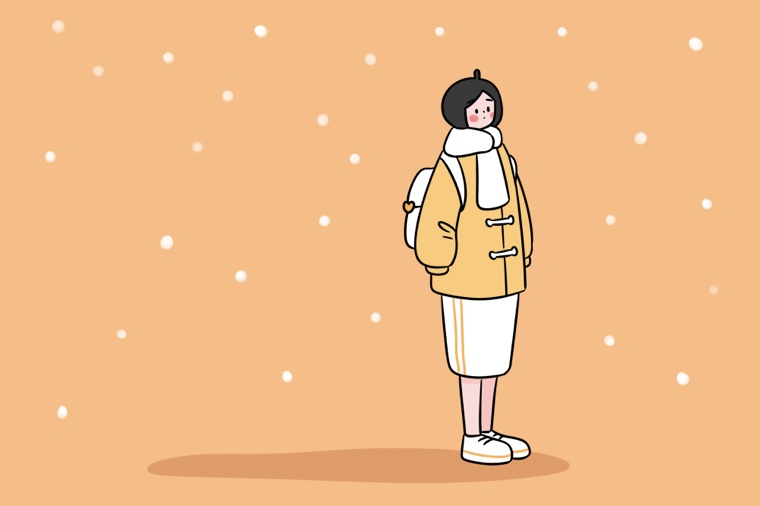
自然界产生氧气的化学方程式:光合作用的反应式为6CO2+12H2O→C6H12O6+6O2+6H2O。包括光反应和暗反应两个过程。需要具备光...
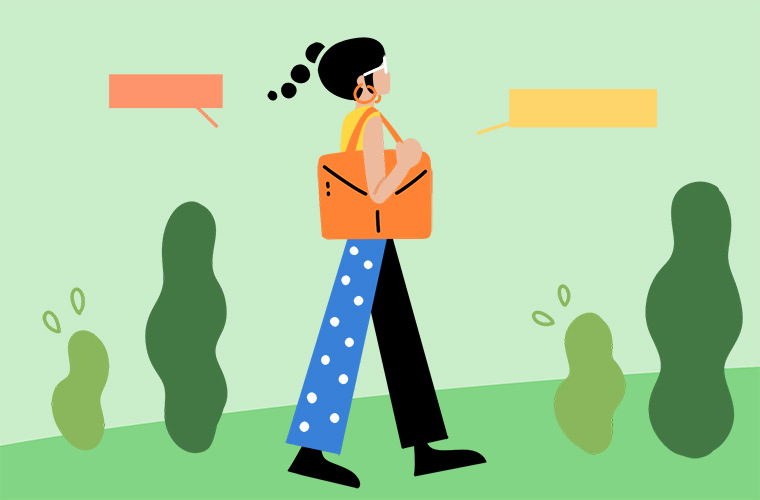
有的高校没有条件,只要学业水平成绩都合格就可以,比如中国科学院大学。有的需要平常学习考试成绩,比如北京外国语大学要求高三第一学期期末成绩在全...
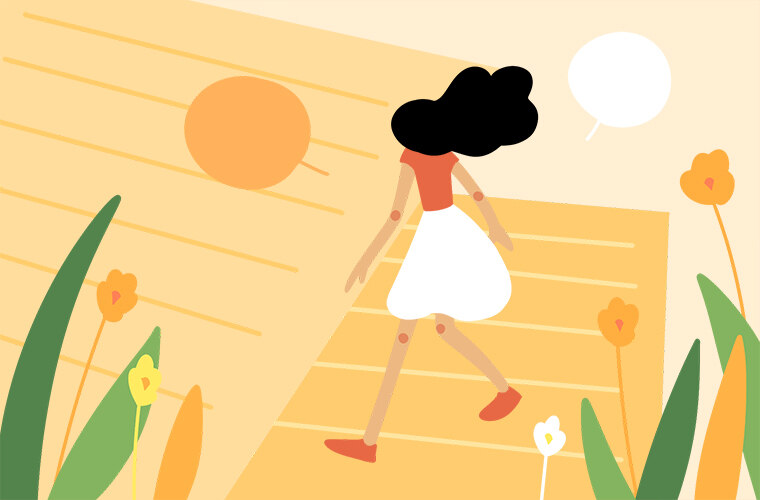
在四则运算中,表示计算顺序,在小括号之后、大括号之前;表示两个整数的最小公倍数;表示取未知数的整数部分;在函数中,表示函数的闭区间;在线性代...
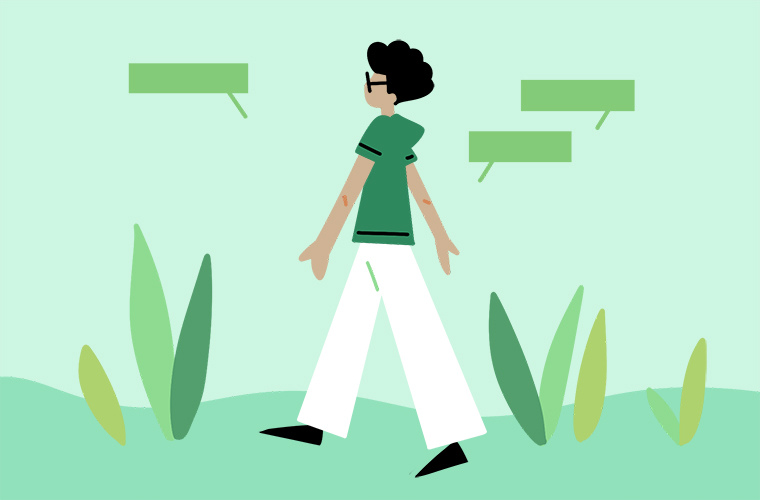
济南开设的最好的职高学校有:济南方信集团职业高中、济南公共交通职业高中。济南市公共交通职业高级中学是由济南市公共交通总公司承办,业务属济南市...

实然:是说事物实际上就是这样的,但不同于现实性(现实性指其有合理性和客观性);应然:就是应该是怎么样的意思,比如说这件事,就应该是那样的结果...

地中海气候一种夏季炎热干燥、冬季温和多雨,雨热不同期的气候类型。地中海气候冬季受西风带控制,锋面气旋频繁活动,气候温和,最冷月的气温在4-1...
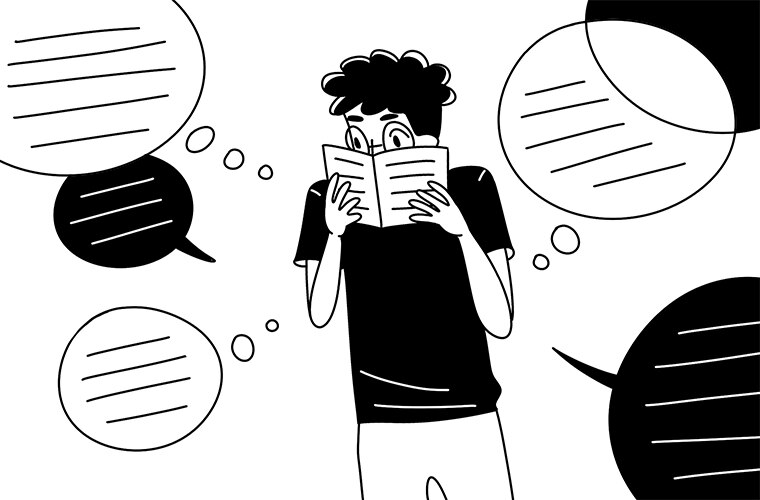
碱石灰,又称钠石灰,碱石灰是白色或米黄色粉末,疏松多孔,是氧化钙(CaO,大约75%),水(H₂O,大约20%),氢氧化钠(NaOH,大约3...